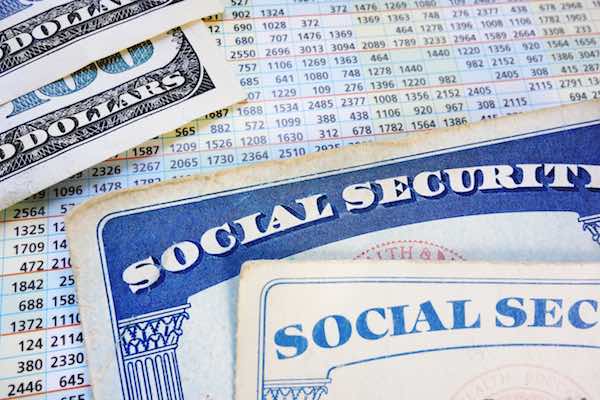Congressman Kevin Brady (R-TX) is making another legislative effort to replace the Windfall Elimination Provision (WEP) with a different formula for federal retirees and other individuals who are impacted by it.
Brady recently reintroduced the Equal Treatment of Public Servants Act (H.R. 5834). The bill would provide individuals impacted by the WEP who are age 60 and older with a monthly rebate of $100 ($50 for surviving spouses) and change how the WEP is calculated for individuals who are currently under age 21. Also, for people between age 22 and 59, the individual’s WEP penalty would be calculated either using the current formula or the new one created by the bill, whichever is more beneficial.
The bill has 38 co-sponsors as of the time of this writing.
This is not the first time that Brady has introduced the legislation. It was previously introduced in 2019 but failed to become law.
Other WEP Reform Legislation
Other bills intended to reform the WEP or Government Pension Offset (GPO) have been introduced in Congress this year.
In April, Congressman Richard Neal (D-MA) reintroduced legislation in an attempt to provide “meaningful WEP relief to current retirees and public employees while treating all workers fairly.”
Neal’s bill would do the following:
- Make future retirees who turn 62 in 2023 or later eligible for a new benefit formula called the Public Servant Protection (PSP) formula. This formula calculates benefit amounts based on the proportion of lifetime earnings covered by Social Security.
- Maintain the current WEP exemptions (i.e. for individuals not receiving a pension and for those with 30 years of coverage) and extend them to the PSP as well. In other words, people are exempt from both the PSP and the WEP if they have 30 or more years of coverage or if they do not receive any pension based on their state or local employment.
- Provide a benefit guarantee for all future retirees by ensuring that they receive the higher of either the PSP or WEP.
In January, Congressman Rodney Davis (R-IL) reintroduced the Social Security Fairness Act (H.R. 82). The bill would repeal both the WEP and GPO.
About the WEP
The Windfall Elimination Provision (WEP) reduces the Social Security income of local, state and federal retired employees who worked in jobs covered by Social Security (i.e. private sector jobs) and who also get a government annuity from their non-Social Security covered government employment. For example, federal retirees under the Civil Service Retirement System (CSRS) could potentially be impacted by the WEP.
The Congressional Research Service (CRS) describes it this way:
The windfall elimination provision (WEP) is a modified benefit formula that reduces the Social Security benefits of certain retired or disabled workers who are also entitled to pension benefits based on earnings from jobs that were not covered by Social Security and thus not subject to the Social Security payroll tax. Its purpose is to remove an unintended advantage or “windfall” that these workers would otherwise receive as a result of the interaction between the regular Social Security benefit formula and the workers’ relatively short careers in Social Security-covered employment.
How many people are impacted by the WEP?
As of December 2020, about 1.9 million people were affected, 94% of whom are retired workers. This amounts to approximately 3% of all Social Security recipients. These individuals were mostly state and local government employees covered by alternative staff-retirement systems as well as federal employees under CSRS.
The CRS also notes:
WEP’s supporters argue that the formula is a reasonable means to prevent overgenerous payments and unintended benefits to people who have earnings not covered by Social Security and receive pensions from noncovered work. Opponents argue that the provision substantially reduces a benefit that workers may have included in their retirement plans, and it reduces benefits disproportionately for lower-earning households. Others criticize the current WEP formula as an imprecise way to determine the actual windfall when applied to individual cases.
For details on how the WEP can impact a federal retiree’s income, see How Does the WEP Affect Your Retirement Income?.




